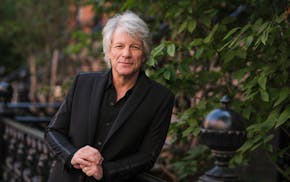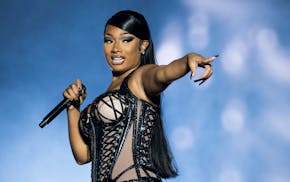Andrew Korte, 21, sat snacking on a sandwich on the steps outside of the library at the University of St. Thomas one recent afternoon along with his friend Jeremy Leavell. Leavell, 21, is also a student at St. Thomas. Like many young people across the nation, Korte is uncertain what the future has in store for him.
"There's going to be a lot of students coming out of school looking for jobs, and they're going to be more concerned about whether or not the jobs are going to be there," complained Korte.
He's not alone. As the nation gears up for the November presidential election, young Minnesota voters are voicing concerns about the economy, the Iraq war and education costs.
Those concerns shouldn't be a surprise. According to a nationwide survey conducted this spring by the Institute of Politics at Harvard University, the top issues among youths are the economy and the war in Iraq.
In the Harvard survey, the economy accounted for 29 percent of young adults' main worries, including rising gas/oil prices and employment/jobs. Iraq accounted for 20 percent of main concerns. Other big issues include heath care (9 percent) and education (3 percent).
Joshua Martins, 22, of St. Paul, is frustrated by not having enough money to buy what he wants, including gas. Most of the time, he walks around wearing old sneakers he bought at a thrift store. Sometimes he drives around town in his white, rusty 1994 Toyota Camry.
Martins spends most of his time looking for a part-time job. He said his current job is unstable and isn't paying him enough.
"At first, I didn't expect the prices of anything to go up; plus, I don't have enough money to buy the things I wanted to buy. That frustrates me," he said.
Minnesota's unemployment rate hit 5.4 percent in May, up 0.6 percentage points from April and the highest jobless rate since 1991.
Orville Lindquist, state program executive with Minnesota YMCA Youth in Government, works with a lot of young people and hears their worries about jobs and money.
"Even with a salary someone has now, it seems like they're not going to earn enough money to pay bills and taxes," he said.
According to national polls over the past year, the economy has overtaken the Iraq war as young people's main concern. In a CBS/MTV poll of 18-29 year-olds last April, two-thirds think the next president should end the war within the next two years. One third said the president should keep fighting.
Megan Miller, a 21-year-old student at the University of St. Thomas, says the U.S. rationale for getting into the war might have been right, "but the place that we got ourselves into now is not a good place."
Dielle Meisner, 20, a St. Thomas student, complained that the war "takes a lot financially from the country." But Jason English, 32, of the Twin Cities, warned that the United States has to be careful if it withdraws troops. Withdrawing troops now would be a bigger problem, he said.
Education costs are another big worry for young voters. Since the tuition costs of college are going up, "Students are leaning towards community colleges and private colleges instead of going to the big public universities," said Lindquist.
No matter the issue -- the war, economy or education costs -- young people have less than five months to decide whom they want to be the next president of the United States.
Complex stories of migration are among the finalists for the Women's Prize for Fiction
Olympian Kristi Yamaguchi is 'tickled pink' to inspire a Barbie doll

After 4 decades in music and major vocal surgery, Jon Bon Jovi is optimistic and still rocking
Rom-com author Emily Henry knows the secret to having a healthy relationship with love

